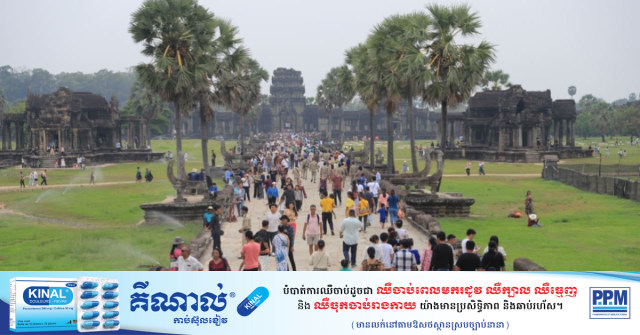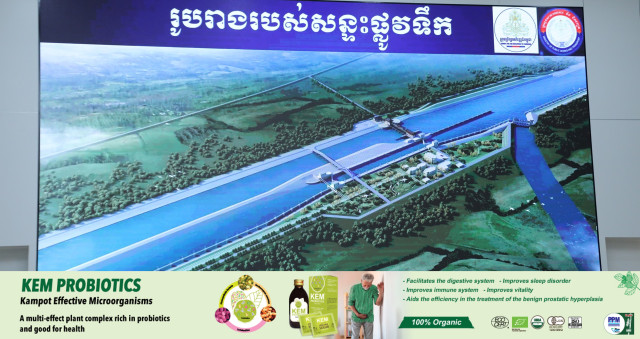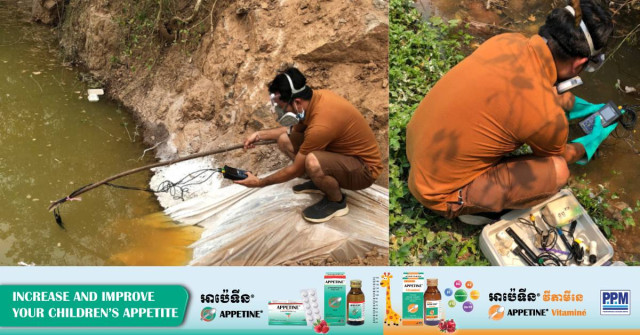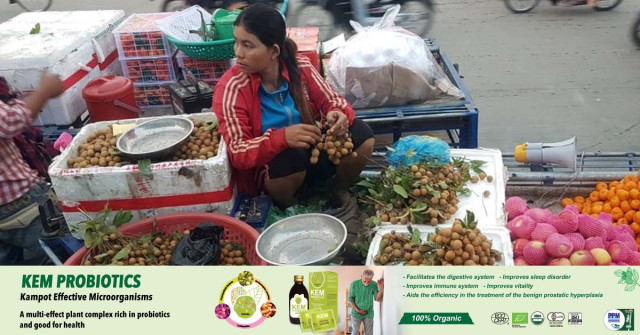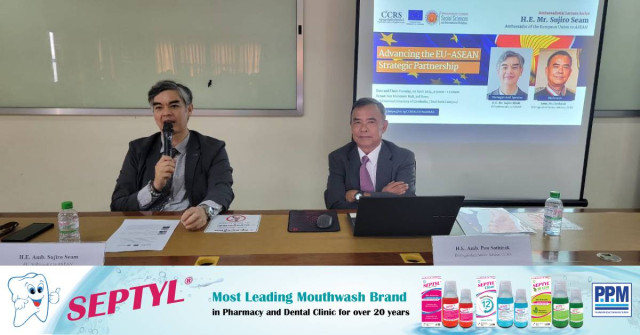Farmers in Takeo and Kandal provinces See the Benefits of Organic Vegetable Production
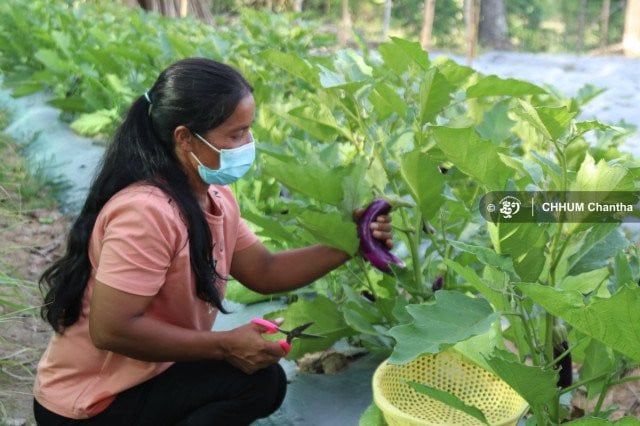
- By Chhum Chantha
- April 10, 2022 6:34 PM
While they managed to stop using chemical fertilizers thanks to a program supported by Australia, organic produce production still fails to meet the country’s needs
PHNOM PENH–In 2015, World Vision launched a project supported by Australian Aid to help farmers in Takeo and Kandal provinces set up profitable organic-farming operations and also help meet the country’s demand.
Extended in 2017, the Micro-franchised Agriculture Service Expanded (MASE2) has managed to help hundreds of farmers go from using chemical fertilizers to grow vegetables to organic farming, and also helped them find markets for their products.
“Some farmers have land, but they do not have the equipment for farming,” said Khit Sophoeun, a technician with MASE2. “So…we have provided farmers with materials, knowledge and skills. We teach them how to make their own compost and taught them about safety standards.”
To date, 1,702 farmers, including women and people with disabilities, have benefited the program and learned to grow vegetables in line with health standards, he said. Those farmers are in the districts of Khsach Kandal and Sa’ang in Kandal Province, and the districts of Borei Cholsar, Kiri Vong, Koh Andet and Samraong in Takeo Province.
In the past, most of the vegetables grown in Sa’ang District used to be blacklisted by buyers as farmers used too much chemicals, Sophoeun said. But over the last three years, some of the farmers have altered their techniques to comply with safety and hygiene standards as well as switched to organic farming.
Hong Sroy, a vegetable farmer of Kampong Trea Village in Sa’ang District’s Sa’ang Phnom Commune, said that, through the project, farmers like herself have become aware of the risks of growing vegetables with chemicals and realize that vegetables grown with chemicals are not as marketable as in the past.
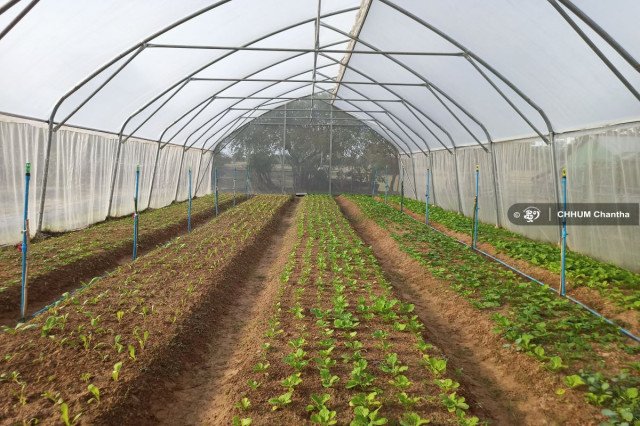
That's why some farmers have stopped using chemicals so they can sell produce at higher prices as most consumers now think about their health, Sroy said.
However, she added, "[s]ome people use fertilizer and too much chemicals until they no longer dare to eat themselves what they grow. I also tried to explain to them and encouraged them to turn to growing safe vegetables because it does not affect health.”
Touch Pech, president of the Svay Proteal Agriculture Community in Sa’ang District’s Svay Proteal Commune in Kandal Province, said that farmers in her community progressively moving away from unstainable agricultural practices such as using chemicals.
So far more than 200 families, that is, 70 percent of the population of the community, have turned to growing vegetables without chemicals, and they can now produce over one ton of vegetables per day to supply the market, Pech said.
A farmer and head of the Sample Russey community in Koh Andet District in Takeo Province, Mom Chorn recalled that, in the past, farmers would only grow vegetables in the traditional way without attempting to learn healthier techniques.
But since they have taken part in the MASE2 project, many farmers have learned a great deal and gone from using chemicals to organic techniques, which has been a significant step for farmers, Chorn said. "We no longer worry that there is no market for our vegetables. As long as we can grow vegetables in our community, people can generate good income.”
Moreover, he said, farmers should switch to growing organic vegetables and other produce to meet the domestic demand and also reduce the import of vegetables grown with chemicals.
Nuon Tom, head of business development and purchasing at the Khmer Organic Cooperative, said that due to the MASE2 project, his company has been buying vegetables from farmers—mainly from the Svay Proteal Agriculture Community—for three years, purchasing between 20 to 30 tons per month.
"The reason for buying vegetables in Sa’ang District is that our farmers have changed their practices to using standard techniques for farming, which is in line with our company’s needs so as not to affect the health of consumers," he said.
Khmer Organic has also helped farmers grow produce in accordance with health standards by buying their produce to supply shops and markets in Phnom Penh, Tom added.
Organically-grown vegetables have gained popularity, he said. However, efforts need to be made to encourage people to trust and consume more produce grown according to health standards.
Growing produce without chemicals continues to be an issue in Cambodia as many farmers still rely on them. Minister of Agriculture, Forestry and Fisheries Veng Sakhon has acknowledged that the lack of vegetables grown without chemicals remains a challenge. The country needs 20 to 30 percent more vegetables grown without chemicals to meet the country’s demand, he said.
Therefore, Sakhon stressed, more vegetables must be grown organically in order to meet the domestic demand, expand overseas markets and reduce imports.
According to a report of the General Department of Agriculture, the total area used for vegetables went from 51,338 hectares in 2014 to 69,850 hectares in 2021, and land used for vegetable production nearly doubled since 2014, going from 415,239 tons in 2014 to 810,064 tons in 2021.







